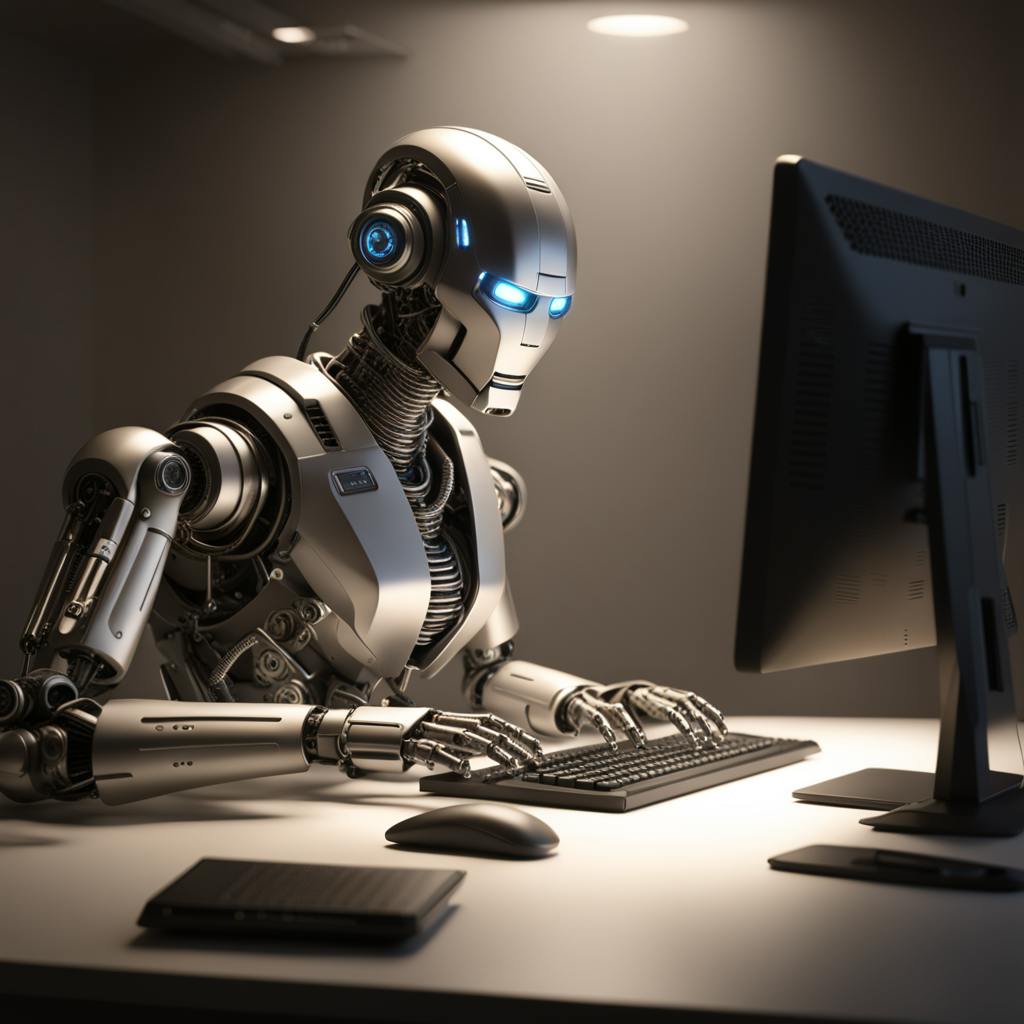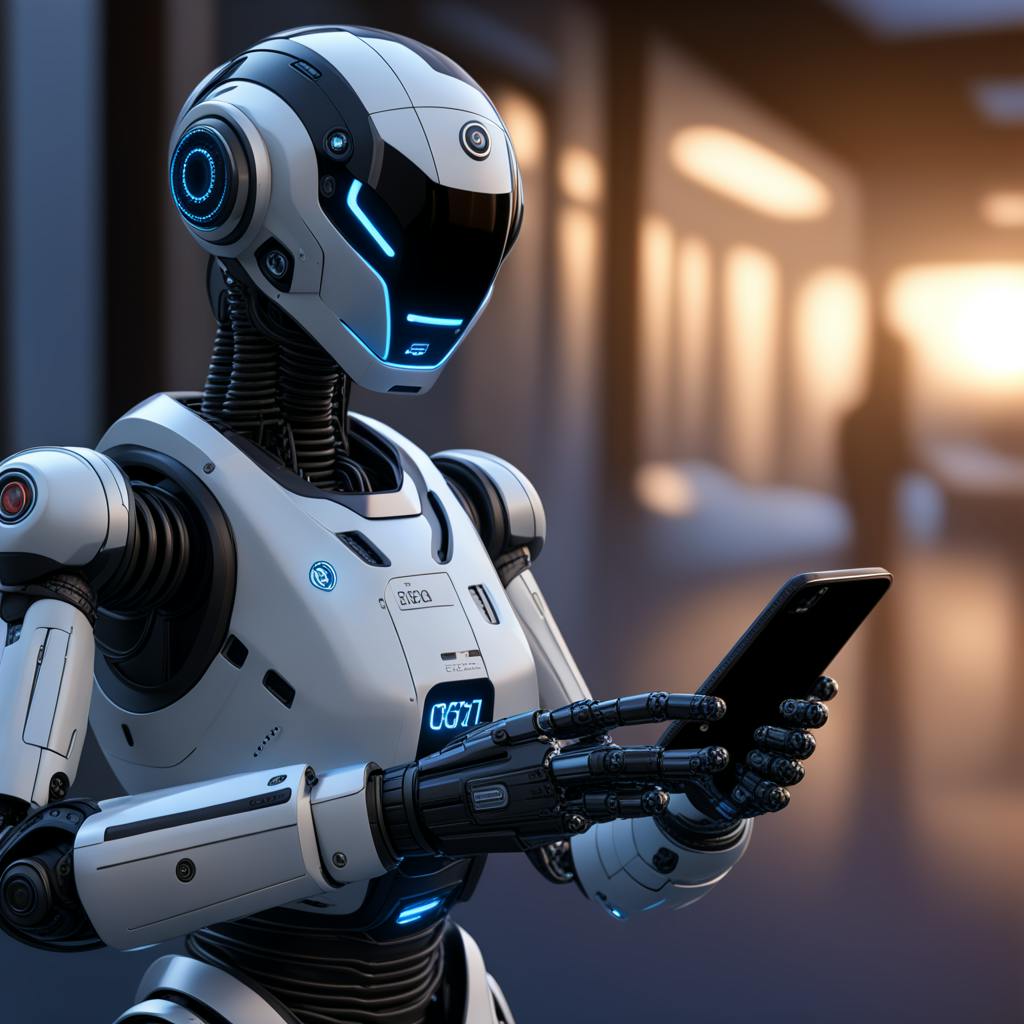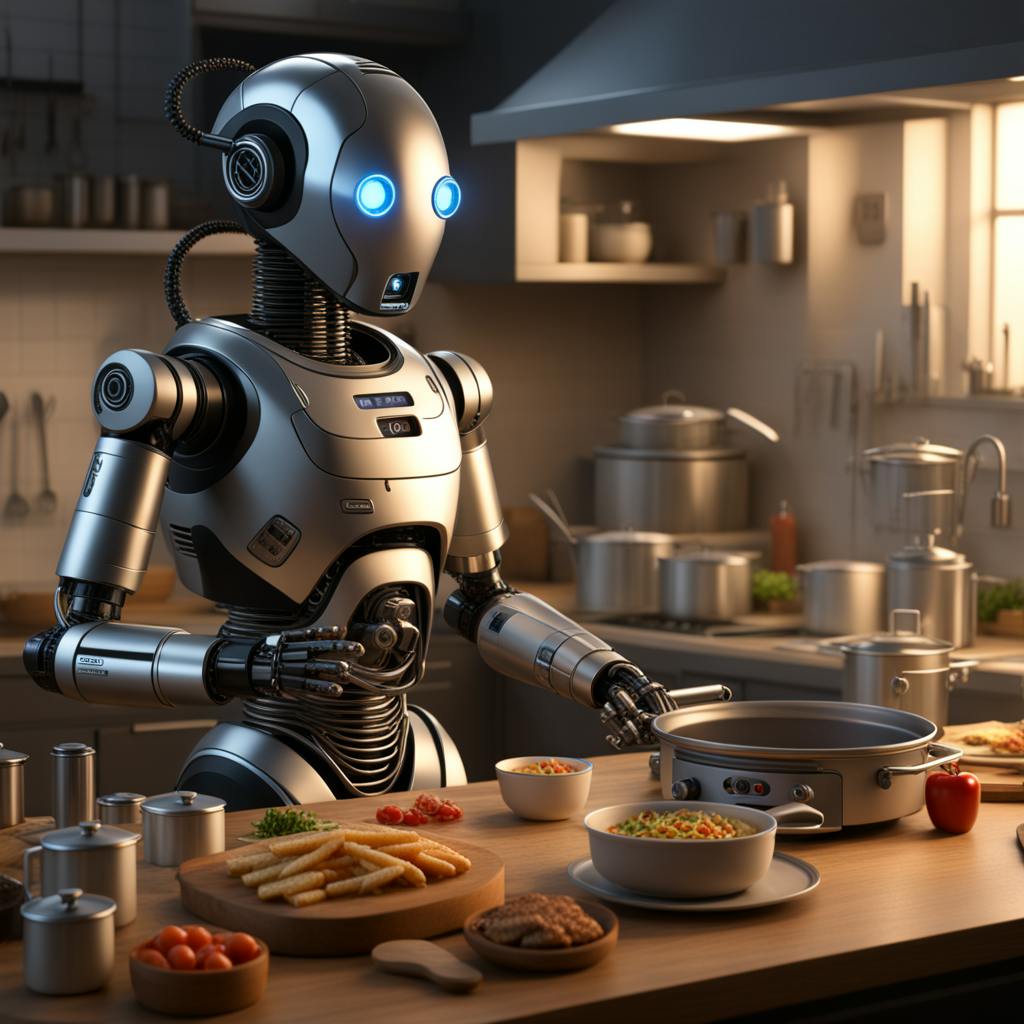In the evolving technological landscape, artificial intelligence (AI) stands at the forefront of innovation, poised to revolutionize various aspects of our daily lives. From streamlining mundane tasks to enhancing complex decision-making processes, AI is the key to unlocking unprecedented potential across industries. As we embrace this technological marvel, understanding its implications and possibilities becomes essential.
The Role of AI in Our Lives
Artificial intelligence is no longer a distant concept relegated to science fiction; it is a tangible and integral part of our current technological landscape. Whether through the virtual assistants that manage our schedules, the personalized recommendations that guide our purchases, or the sophisticated tools that enhance healthcare and education, AI's presence is ubiquitous. Its ability to process immense data sets, discern patterns, and make informed decisions is unparalleled, offering insights that were previously beyond human reach. By analyzing and interpreting data with accuracy, AI not only augments human capability but also democratizes access.
How AI Enhances Everyday Tasks
AI significantly enhances our daily routines by simplifying and optimizing tasks. In the realm of household management, smart home devices like thermostats and lighting systems adapt to our habits, creating energy-efficient and comfortable environments. AI-driven chatbots have revolutionized customer service, offering immediate assistance and resolving issues with precision. In the automotive sector, AI's role in developing autonomous vehicles is pivotal, promising safer roads and reduced traffic congestion. Moreover, AI's impact on healthcare is profound; it aids in early disease detection, personalized treatment plans, and even robotic-assisted surgeries, thus transforming patient care. As AI continues to evolve, its potential to reshape daily life becomes ever more apparent, enhancing our interactions and improving quality of life.
The Experts' Perspective on AI
Leading voices across industries underscore AI's transformative potential. Andrew Ng, a pioneer in AI research, highlights its capacity to enhance global productivity and efficiency significantly. In contrast, tech visionaries like Elon Musk advocate for responsible AI development, emphasizing the need for ethical considerations to ensure AI technologies serve humanity's best interests. These expert perspectives reinforce the notion that while AI offers immense benefits, it must be harnessed thoughtfully to maximize its positive impact on society.
Addressing Common Questions About AI
As AI becomes more embedded in our lives, it naturally invites questions and concerns about its implications. One prevalent concern is the potential for AI to displace jobs. While automation may render some roles obsolete, it also creates opportunities for new employment sectors that require human creativity and emotional intelligence—qualities AI cannot replicate. Privacy is another critical issue, as AI systems often rely on personal data. Addressing these concerns, advancements in AI are increasingly prioritizing data security and user consent, ensuring a balance between innovation and privacy.

AI made with Christophe Vacher
FAQ on Artificial Intelligence
What is the potential impact of AI on our daily lives?
Artificial Intelligence (AI) holds transformative possibilities that can fundamentally alter various aspects of daily life. Its potential impact is far-reaching and can be observed across several domains:
- Healthcare: AI can improve diagnostic accuracy and personalize treatment plans, leading to better patient outcomes. Its predictive analytics can manage and mitigate diseases, while robotics can assist surgeries with precision.
- Transportation: Self-driving cars and AI-driven traffic management systems promise to reduce accidents, optimize fuel consumption, and liberate time spent commuting, thereby improving overall mobility.
- Education: AI-powered tools can create personalized learning experiences, adaptive curriculum, and automate administrative tasks, allowing educators to focus more on student interaction.
- Entertainment: AI influences content recommendation systems, making media consumption more aligned with individual preferences. It helps in creating realistic video game worlds and even generating new music or art.
- Finance: AI enhances the efficiency of banking operations, fraud detection, and risk management. It also aids in personalized financial advice and investment strategies.
- Home & Lifestyle: Smart home devices use AI to monitor security, save energy, and automate household management tasks, contributing to a better quality of life.
Overall, AI can enhance efficiency, reduce costs, and create novel experiences in daily life. However, it also raises concerns regarding privacy, job displacement, and ethical use, requiring balanced integration into society.
How is AI transforming our everyday lives?
AI is increasingly intertwined with daily activities, transforming how we interact with technology and each other. Here are some ways AI is manifesting this change:
- Voice Assistants and Smart Devices: AI-powered voice assistants like Amazon’s Alexa, Google Assistant, and Apple’s Siri enable hands-free operation of devices, simplifying task management in personal and professional settings.
- Customer Service: AI chatbots and virtual agents are revolutionizing customer service by providing 24/7 assistance, handling inquiries, and resolving issues with improved efficiency and speed.
- Personalization: AI algorithms analyze user behavior to tailor recommendations for products, services, and content, creating more personalized experiences in shopping, entertainment, and social media.
- Automation: Routine and time-consuming tasks are increasingly automated through AI in areas like data entry, scheduling, and even decision-making processes in various industries.
- Healthcare Monitoring: Wearable devices powered by AI track health metrics and alert users to anomalies, enabling proactive health management.
With AI becoming more sophisticated, its role in seamlessly integrating into daily life routines is expanding, enhancing convenience and productivity.
What roles does AI play in discovering the future?
AI is pivotal in exploring and shaping the future by facilitating advancements in various sectors:
- Scientific Research: AI tools are accelerating discoveries in fields like genomics, material science, and pharmaceuticals, where complex data analysis can unveil new solutions and innovations.
- Environmental Management: AI-driven models predict climate change patterns and optimize resource utilization, aiding in the development of sustainable practices and technologies to mitigate environmental impact.

AI made with Christophe Vacher
- Space Exploration: AI helps analyze astronomical data, automate spacecraft systems, and navigate remote planetary environments, enhancing our understanding of the universe.
- Future Workforce: AI influences the evolution of job markets by creating new types of jobs focused on AI development and management, while potentially displacing some traditional roles. These dynamics guide educational frameworks to prepare future workforces.
- Urban Planning and Smart Cities: AI aids in designing intelligent city infrastructures, optimizing traffic flow, energy use, and public safety, making cities more livable and resilient.
AI’s ability to process vast amounts of information and uncover patterns and insights is crucial in developing new technologies and solutions that will define the next era of human advancement.
Why is AI considered crucial in future transformation?
The importance of AI in future transformation is underscored by several factors:
- Efficiency and Productivity: AI can optimize processes across industries, leading to increased productivity and efficiency. The ability to handle large-scale operations and data-intensive tasks surpasses human capabilities, providing significant value.
- Innovation and Competitiveness: Organizations and nations leveraging AI are at the forefront of innovation, leading to competitive advantages in the global market. AI enables the development of new products, services, and business models.
- Decision Making: AI provides actionable insights through predictive analytics and deep learning algorithms, allowing for informed decision-making in complex scenarios, from stock market investments to medical diagnoses.
- Adaptability and Scalability: AI systems can adapt to new data and scale with business needs, allowing organizations to remain flexible and responsive to changing environments.
- Addressing Global Challenges: AI has the potential to solve critical global issues such as hunger, disease, and sustainability, by finding new ways to utilize resources and manage population challenges.
AI is seen as a cornerstone in future societal transformation, shaping new paradigms in every sector it touches while posing challenges that must be navigated responsibly.
As we look to the future, AI's role in transforming our everyday lives becomes increasingly clear. By enhancing our abilities, tackling routine challenges, and providing new insights, AI is poised to change how we live and interact. Addressing common concerns like job displacement and privacy, AI's continued evolution promises alignment with human needs and values. Embracing this change, we can anticipate a future where AI empowers us to lead richer, more informed lives.
Let’s get creative together.
Embark on a journey of innovation with our Creative Solutions Specialist through a complimentary consultation.

